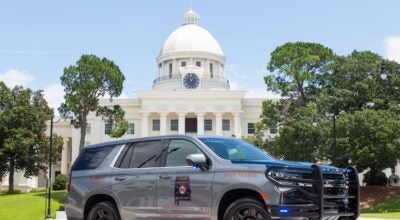Genealogical Society hosting DNA workshop
Published 10:30 pm Thursday, April 19, 2018
By Oniska Blevins | The Selma Times-Journal
Sankofa, a term of the Ghanaian Twi language, means to “go back and get it.” The Black Belt African American Genealogical and Historical Society has used the term as the blueprint for its foundation.
Brenda “B.J.” Smothers founded the organization in 2006 with the main purpose of studying and exchanging information among people interested in African American genealogy, family history and historic preservation, specifically in the Black Belt area.
“Genealogists believe you can’t know where you’re going unless you know where you came from,” she said.
Smothers said even though they may have a specific focus, their programs are for everyone.
“We focus on African American genealogy because it has been neglected, but we do genealogy for everyone,” she said.
She said African Americans’ history was stolen from them during slavery, but by understanding and studying genealogy, there is a slight chance of retracing some of that history and ancestry.
As a part of their efforts in helping people in central Alabama research their roots, the organization has started the Black Belt of Alabama DNA Project. The “Understanding Your DNA Results” workshop is the first event under the project, and will be held at the Selma-Dallas County Public Library Saturday, April 21 from 10 a.m. until noon.
“The reason we chose to do this is because there is a lot of people who, because they see these ads on TV, want to do the test, but they are not sure what information will be provided should they take the test,” Smothers said.
Genetic genealogist Angelis Robinson-Smith will lead the discussion and explain different ways to have your DNA checked for more accurate genealogy results.
“Some people who have taken the test already, and they’ve gotten it back … they’re looking at the results saying, ‘I don’t understand what I have.’ She’s going into [explaining] that,” Smothers said.
Any community member that can trace their ancestry in Dallas, Marengo, Perry or Wilcox counties all the way back to the 1800s are also welcome to come and share information with the group. Researchers are often able to trace African American ancestry by traditional means back to the first census that was done after freeing the slaves by the signing of the Emancipation Proclamation, but Smothers said this project takes a different approach.
“What we really focus on is records that led around the slavery era and reconstruction,” she said.
This project is designed to help people reach further back in their history and possibly learn of their family’s African origin.
Smothers said there are proportionally not many African Americans in the genealogical database, and she would like to change that.
“We want to increase the numbers of African Americans in these databases, so that we can help each other find those connections,” she said.
The organization also has a book called “The African American Heritage Book Vol. 1” that was published in 2016 and was such a success that they are publishing a second volume.
“After the book came out everyone was like ‘I want my story in there too,’ so we [are] collecting stories for volume two, which will be published in 2019,” she said.
The organization has several other projects throughout the year to help Black Belt community learn and understand their DNA. For more information on the Black Belt African American Genealogical and Historical Society visit www.bbaaghs.org.





